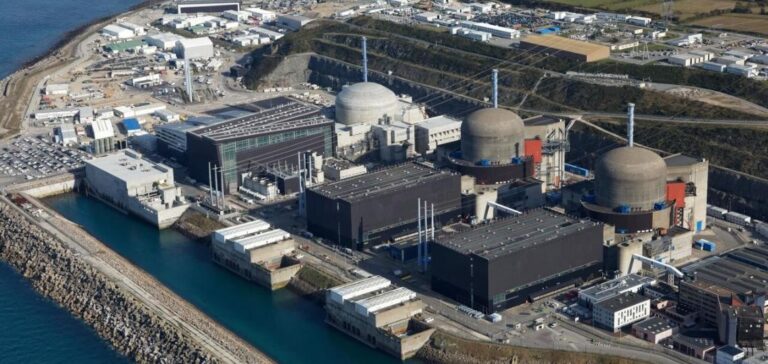Électricité de France (EDF) has announced a delay in the restart of reactor unit 1 at the Flamanville nuclear power plant following the detection of a radioactive steam leak in a pipe connected to the primary circuit. The Nuclear Safety and Radiation Protection Authority (ASNR) classified the event as a “significant safety event,” placing it at level 1 on the International Nuclear Event Scale (INES), which ranges from 0 to 7.
The malfunction was identified on 22 March while the 1,300-megawatt reactor was being brought back online after a maintenance shutdown. The leak originated from a small-diameter pipe — approximately 15 millimetres — linked to an auxiliary pipe inside the reactor building. According to Julien Collet, Deputy Director General of the ASNR, the measured flow rate was around 1,000 litres per hour.
Regulatory inspection and incident management
Initial measures led to the reactor being placed in a “safe shutdown” state, which involved lowering pressure and temperature to maintain operational safety. The contaminated water, in the form of steam, was fully contained using dedicated systems inside the closed reactor building.
EDF confirmed that the leak caused “no impact on the environment or safety,” as no personnel were present inside the facility at the time. An inspection conducted by the ASNR on 26 March verified the proper execution of emergency procedures.
Impact on production timeline
The reactor’s restart, initially scheduled for 5 April, has now been postponed to 5 May to allow for technical assessments and repair work on the affected pipes. The ASNR stated that it will ensure the operator carries out the necessary investigations to determine the exact cause of the leak, without giving any additional timeline.
The incident does not affect the European Pressurised Reactor (EPR) currently under construction at the same site, but rather an older reactor already in operation. The Flamanville facility, located in the Manche department, holds a significant role in France’s nuclear energy mix.





















